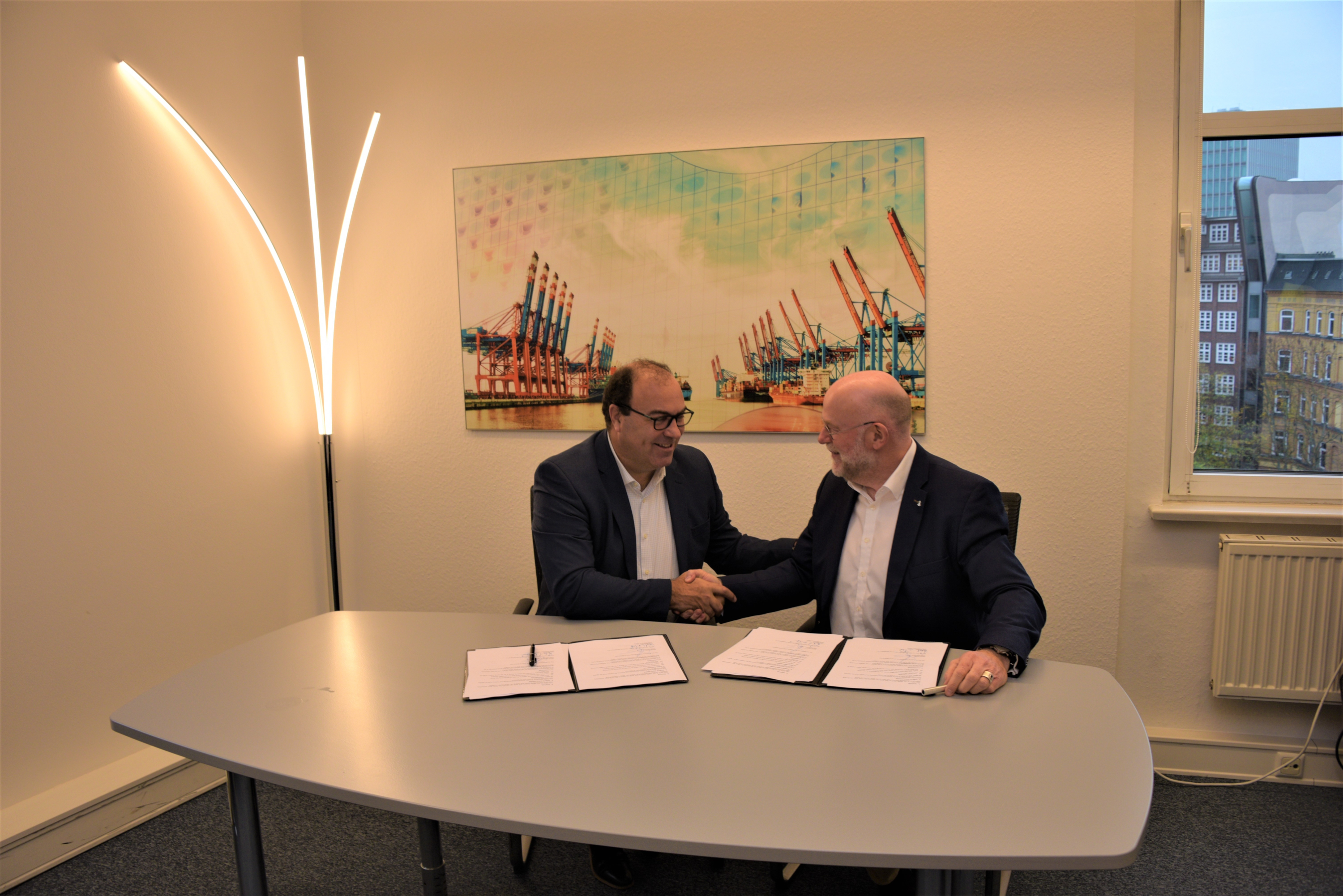The Belledune Port Authority (BPA) has signed a Memorandum of Understanding (MOU) with Germany’s largest seaport, the Port of Hamburg, to collaborate on the movement of dry and liquid bulk commodities, and manufactured products, between Canada and Germany, with a focus on clean fuels and green products.

The Port of Hamburg, located on the River Elbe, about 100 kilometres from the river’s mouth on the North Sea, is positioned as Germany’s leading foreign trade hub with up to 450 million consumers in Europe. It has modern handling facilities, communications systems, efficient transport infrastructure and high-performance transport and hinterland connections, serving as a central shipment hub for the entire German energy market.
In August, the Belledune Port Authority (BPA) has also signed a Memorandum of Understanding (MOU) with Niedersachsen Ports, Wilhelmshaven, Germany.
These agreements support the Memorandum of Understanding between the Governments of Canada and Germany to establish an energy partnership aimed at achieving net-zero emissions by 2050 through a transition to safe, secure, reliable, affordable, and sustainable energy. They also support the joint declaration of intent between Canada and Germany to establish a Canada-Germany Hydrogen Alliance signed August 23, 2022, in Stephenville, Newfoundland.
The MOU recognizes that cooperation in transitioning to sustainable energy not only delivers mutual benefits but is also required for the prosperity of the international community.
The MOU recognizes the importance of the role that the Port operations will play in the production, storage and shipment of clean fuels and green manufactured goods, for both domestic and intercontinental markets. The MOU will assure safe and secure access for the movement of clean fuels, green energy and other products between Canada and Germany.
The Ports will form a relationship that will foster collaboration to support the emerging needs of Canada and Germany’s energy and manufacturing sectors, with a focus on the production, storage and shipment of cleaner fuels such as green ammonia, hydrogen, biomass and renewable natural gas.
The Ports will share information on government policy updates, market dynamics, infrastructure developments, technology advancements in the maritime transport sector as it transitions to cleaner fuels and greener energy, best practices on liquid and dry bulk products storage and shipping particularly in the areas of clean fuel and green energy, and actions to support the development of the business-to-business relationships between importers and exporters in Canada and Germany, within the energy and manufacturing sectors.
Additional information about the Port of Hamburg at CruiseMapper